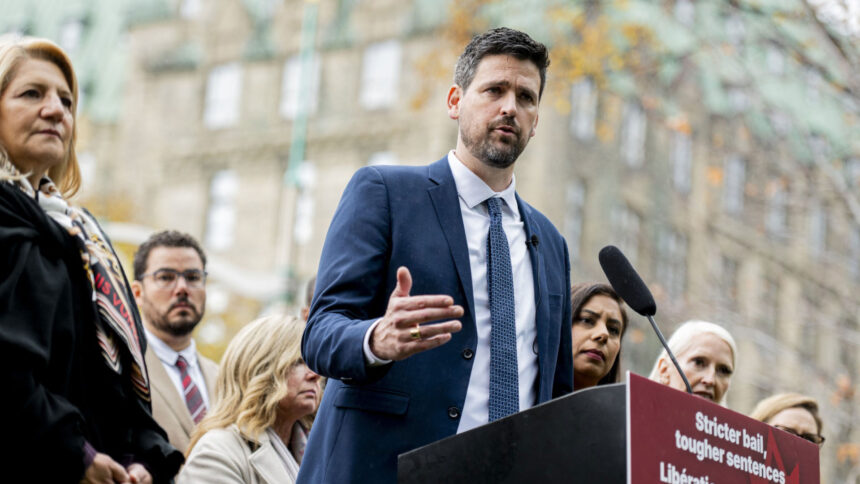Federal Justice Minister Sean Fraser has introduced the Bail and Sentencing Reform Act, he says, to curb crimes that people on bail commit. The minister, however, wasn’t clear on whether people on bail actually commit more crimes. “When it comes to the management of bail and the data collection, there’s obviously a role for provinces to play as well,” Fraser said at a news conference in Ottawa. “The ability of the court to actually enforce some of these rules will depend on a change in practices in some circumstances of the provinces’ need to collect data about what kind of offences are going through the bail system and are actually leading to a bail decision in one direction or another.” If Bill C-14 passes, an accused will be more likely to be denied bail because the onus will be on the defence to prove they should be given bail rather than on the prosecution to prove they should be denied. It’s called reverse onus and it has been expanded to several crimes, including organized auto theft, break and enter into a private residence, human trafficking and some forms of sexual assault. “This notion that we have this crisis – so many people are getting released from custody, from bail and going out and committing crimes, that’s just not happening and that’s a concern,” Jonathan Rudin, special projects director for Aboriginal Legal Services based in Toronto, Ont., said. “And of course, from our perspective, the biggest concern is most of these amendments, most of these tough on crime, purported tougher on crime amendments have a disproportionately negative impact on Indigenous people and that is obviously one of our real concerns.” Rudin, who added that the ALS wasn’t consulted on this legislation prior to it being tabled, said it’s already difficult to get bail in Canada. The Assembly of First Nations, which represents more than 600 First Nation in Canada, also said it wasn’t consulted on the legislation. When pressed on whether the proposed law will increase the number of Indigenous people held in custody, Fraser said the government is working with Indigenous organizations to ensure this doesn’t happen. “I’ve had a number of conversations in recent weeks, in particular about the importance of implementing the Indigenous Justice Strategy,” Fraser said. “On working not just with provinces and territories but with Indigenous governments to understand how we can have enhanced community policing, enforcement of Indigenous laws that are adopted by communities and relying on solutions that are advanced by individual First Nations, Inuit and Metis communities more broadly.” Indigenous people are overrepresented in Canadian criminal courts and far more likely than non-Indigenous people to be convicted and locked up once they come before a judge, according to a 2021 federal government study. Justice Canada researchers analyzed how Indigenous accused fared statistically at key stages of the criminal court process compared to White people between 2006 and 2016. Indigenous accused were 55 per cent less likely than White accused to have their charges withdrawn, dismissed or discharged. Indigenous people were 33 per cent less likely to be acquitted and 14 per cent more likely to plead or be found guilty. Then, once convicted, Indigenous offenders were 30 per cent more likely to be imprisoned. APTN News reached out to Justice Canada to ask who was consulted ahead of the tabling of this bill but a response wasn’t provided before this article was published. Continue Reading
Canadas introduces bail reform law, AFN says it wasnt consulted, same with Aboriginal Legal Services

Leave a Comment










